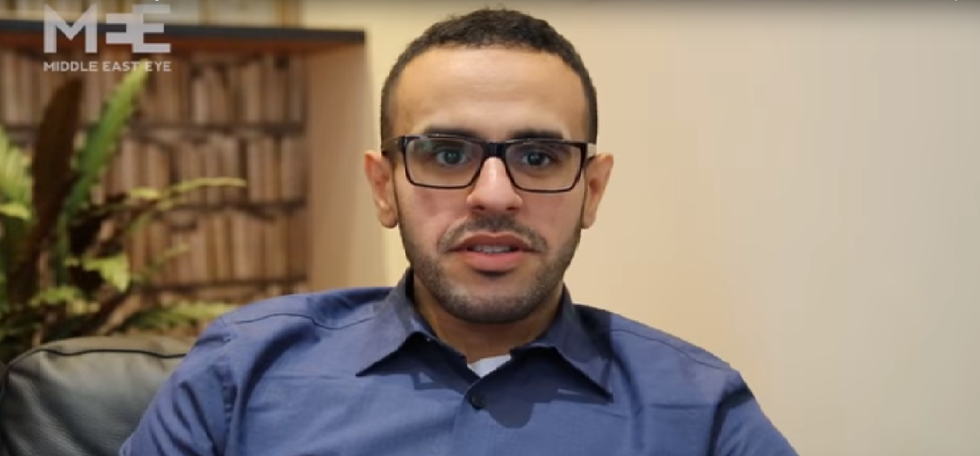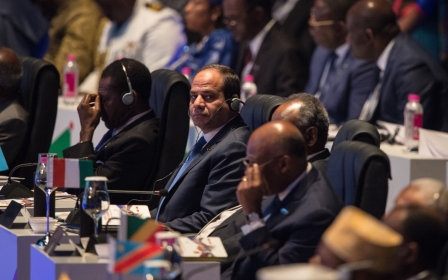Freed Egyptian-American hunger striker urges US aid reform

The US should withhold its military support for the Egyptian government until the country’s rights environment is improved, a freed Egyptian-American hunger striker told a US Congress human rights hearing.
Mohamed Soltan said that not only is the Egyptian government continuing its repressive policies, it “continues to escalate its repression in an unprecedented way, and that is because it is not facing any real consequences for its escalation and its repressions”.
Soltan’s remarks came during testimony before the Tom Lantos Human Rights Commission – a cross-party US congressional commission focused on advocating human rights around the globe.
A former spokesman for the protests in Cairo's Rabaa Square following the 2013 coup, Soltan was sentenced to life imprisonment in May by an Egyptian court. Shortly thereafter he was released and sent back to his home in the United States following a hunger strike that lasted more than 400 days.
Soltan, who described his hunger protest as “an outlet to resist both oppression and radicalisation”, called on US lawmakers to ramp up pressure on Cairo by supporting legislation that would require Cairo to release all political prisoners in Egypt in order to receive funding.
“Me standing here before you today … I am living proof that we have leverage, and we could use it,” he said.
Washington reinstated its $1.3 billion annual military aid to its Arab ally in April amid concerns that militants were making inroads in Egypt as Moscow courted Cairo as a potential US replacement.
But the US in October halted parts of its financing.
The resumed aid has come under scrutiny for potentially running foul of domestic requirements that prevent the State and Defense departments from providing military assistance to foreign security services that violate human rights.
Speaking before Soltan, Assistant Secretary of State for Human Rights Tom Malinowski said the domestic law, known as the Leahy Law, “doesn’t merely enable us, it requires us, to suspend assistance to any unit of a foreign security force, including in Egypt”.
“In the case of Egypt, we are implementing it, and it has had a significant impact on our ability to provide assistance to some parts of the security apparatus in Egypt, particularly the police and the Interior Ministry,” he said.
Still, critics have maintained that Washington should end its military aid altogether, citing continued concerns over Egypt’s rights record.
“We should focus on using our leverage more effectively to persuade President al-Sisi to reverse course,” Daniel Calingaert, Freedom House’s executive vice president, said during Tuesday’s hearing.
“Conditions on aid have become, for the most part, an empty threat. Congress should make these conditions credible,” he said.
Middle East Eye propose une couverture et une analyse indépendantes et incomparables du Moyen-Orient, de l’Afrique du Nord et d’autres régions du monde. Pour en savoir plus sur la reprise de ce contenu et les frais qui s’appliquent, veuillez remplir ce formulaire [en anglais]. Pour en savoir plus sur MEE, cliquez ici [en anglais].




